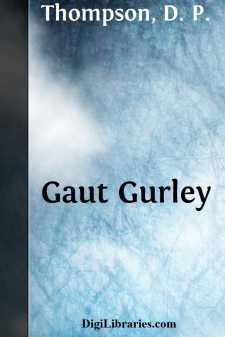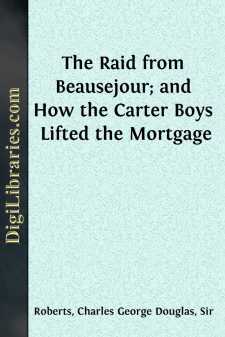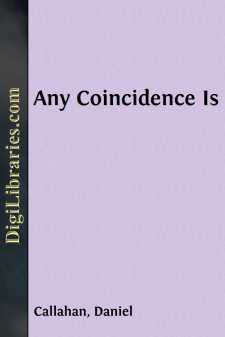Fiction
- Action & Adventure 180
- Biographical 15
- Christian 59
- Classics
- Coming of Age 5
- Contemporary Women 3
- Erotica 8
- Espionage/Intrigue 12
- Fairy Tales, Folklore & Mythology 236
- Family Life 169
- Fantasy 117
- Gay 1
- General 596
- Ghost 32
- Historical 808
- Horror 43
- Humorous 160
- Jewish 25
- Legal 4
- Medical 22
- Mystery & Detective 315
- Political 49
- Psychological 41
- Religious 64
- Romance 159
- Sagas 11
- Science Fiction 730
- Sea Stories 113
- Short Stories (single author) 537
- Sports 10
- Suspense 1
- Technological 8
- Thrillers 2
- Urban Life 31
- Visionary & Metaphysical 1
- War & Military 173
- Westerns 199
Classics Books
Sort by:
The giant space liner swung down in a long arc, hung for an instant on columns of flame, then settled slowly into the blast-pit. But no hatch opened; no air lock swung out; no person left the ship. It lay there, its voyage over, waiting. The thing at the controls had great corded man-like arms. Its skin was black with stiff fur. It had fingers ending in heavy talons and eyes bulging from the base of a...
more...
by:
D. P. Thompson
CHAPTER I. "God made the country and man made the town." So wrote the charming Cowper, giving us to understand, by the drift of the context, that he intended the remark as having a moral as well as a physical application; since, as he there intimates, in "gain-devoted cities," whither naturally flow "the dregs and feculence of every land," and where "foul example in most...
more...
CHAPTER I."BEAUBASSIN MUST GO!"On the hill of Beauséjour, one April morning in the year 1750 A.D., a little group of French soldiers stood watching, with gestures of anger and alarm, the approach of several small ships across the yellow waters of Chignecto Bay. The ships were flying British colors. Presently they came to anchor near the mouth of the Missaguash, a narrow tidal river about two...
more...
by:
John Lord
LOUIS NAPOLEON. 1808-1873. THE SECOND EMPIRE. Prince Louis Napoleon, or, as he afterward became, Emperor Napoleon III., is too important a personage to be omitted in the sketch of European history during the nineteenth century. It is not yet time to form a true estimate of his character and deeds, since no impartial biographies of him have yet appeared, and since he died less than thirty years ago. The...
more...
by:
Daniel Callahan
"I used to do a turn in the army. I was really mad back then… [a] loony! I'd never have any music to introduce me, which was a big deal. Unheard of. I'd hop out on to the stage. It used to take ages. Hop, hop, hop. As I got nearer to the microphone, they'd hear this doddery voice going 'Do do do… do do do.' When I'd eventually make it to the microphone I'd...
more...
by:
James Causey
hen he was nine, Vogel almost killed another boy who inadvertently scattered his half-completed jigsaw puzzle. At sixteen, he discovered the mysteries of the Danish Gambit, and cried. At twenty-two, he crouched in a foxhole on Okinawa, oblivious to the death bursting about him, squinting in a painful ecstasy at the tattered fragment of newspaper on his knee. His sergeant screamed in agony, then died at...
more...
EASY MONEY A lad of about twenty stepped ashore from the schooner Jane, and joining a girl, who had been avoiding for some ten minutes the ardent gaze of the night-watchman, set off arm-in-arm. The watchman rolled his eyes and shook his head slowly. Nearly all his money on 'is back, he said, and what little bit 'e's got over he'll spend on 'er. And three months arter...
more...
CHAPTER I. Colonel Burr's study of the law [1] has been already briefly noticed. He brought to that study a classic education as complete as could, at that time, be acquired in our country; and to this was added a knowledge of the world, perhaps nowhere better taught than in the camp, as well as a firmness and hardihood of character which military life usually confers, and which is indispensable...
more...
by:
Aphra Behn
PREFACE. It is perhaps not altogether easy to appreciate the multiplicity of difficulties with which the first editor of Mrs. Behn has to cope. Not only is her life strangely mysterious and obscure, but the rubbish of half-a-dozen romancing biographers must needs be cleared away before we can even begin to see daylight. Matter which had been for two centuries accepted on seemingly the soundest...
more...
by:
A. Marie Miles
Preface One day, in a very brief conversation, my grandson asked me a question. I did not get to talk with him much, so later I felt really inspired to write some things which were upon my heart, that his question had prompted. Of course I have gone into more detail than he would have had to know, but felt it was good to stir up thoughts of what he did know. After I gave it to him to read, I remarked...
more...











